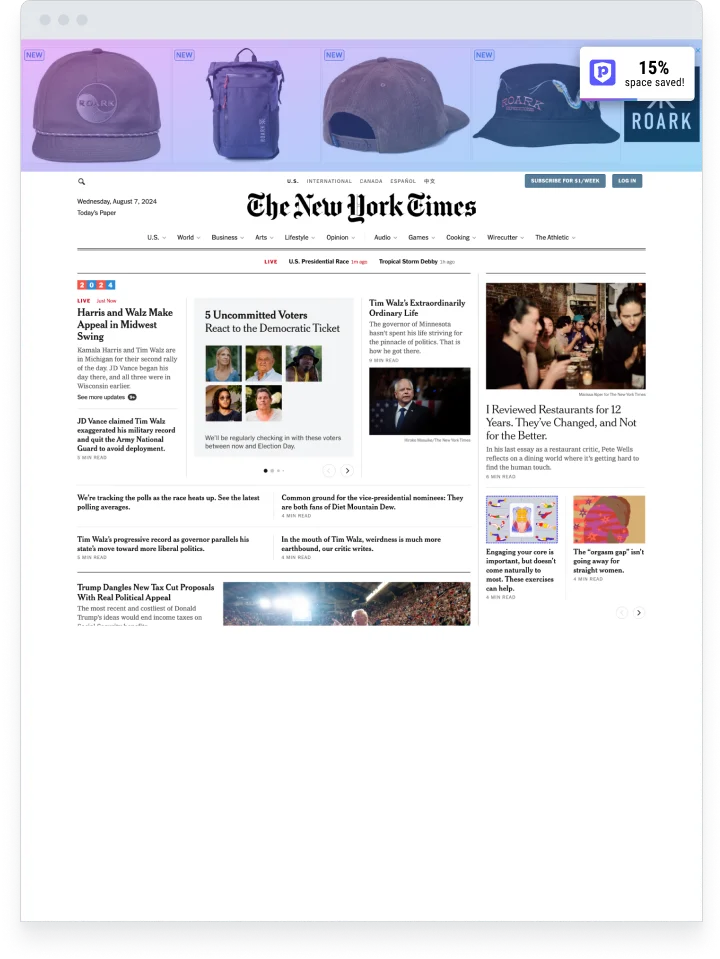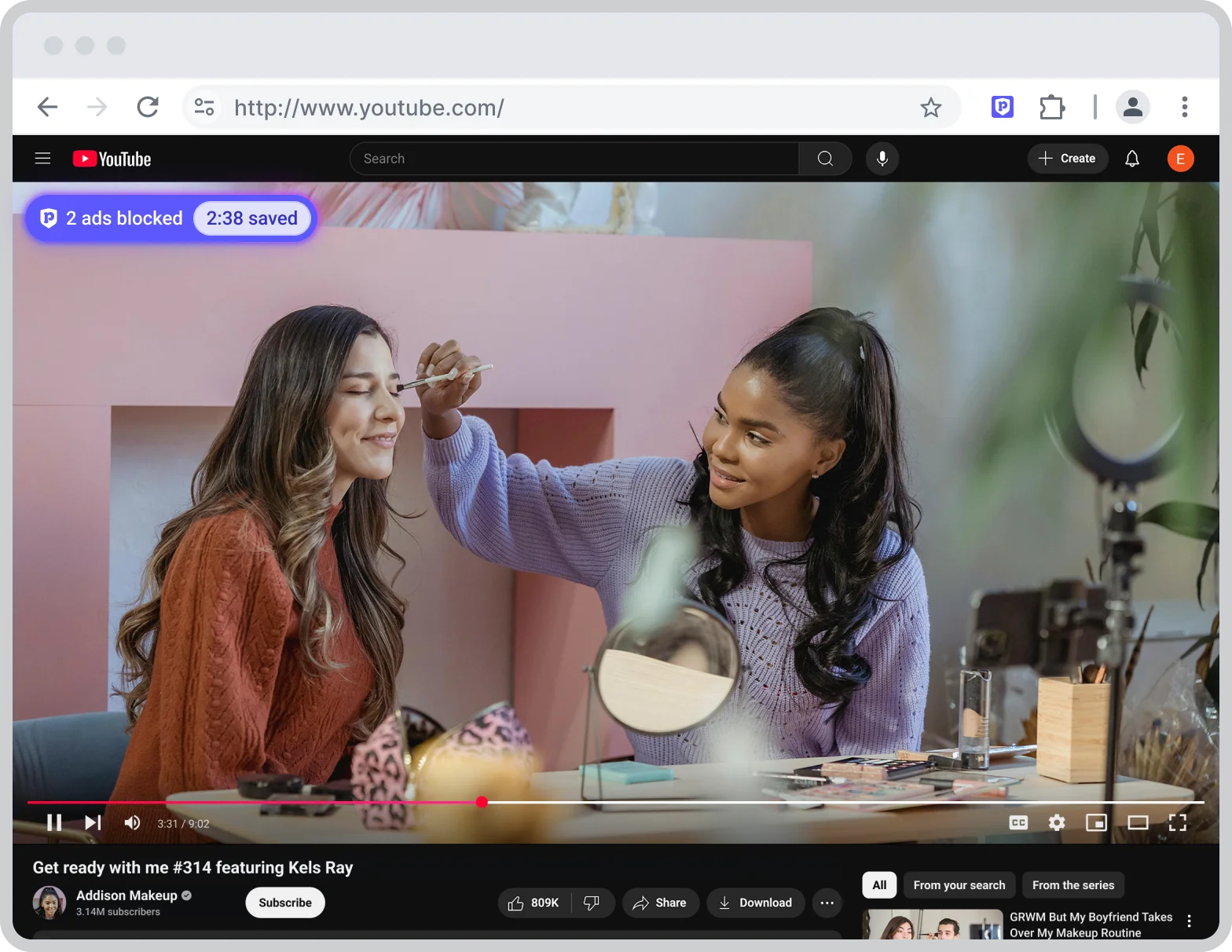Pie Adblock: Is It Safe & Worth It? [Review + Facts]
Is a cleaner, more rewarding internet experience truly within reach, or is there a catch hidden beneath the surface of a seemingly innovative ad-blocking technology? The rise of Pie Adblock and its associated "Pie Shopping" extension has sparked both enthusiasm and skepticism, leading many to question the true cost of a "better internet."
The digital landscape is a complex ecosystem, where content creators, advertisers, and users constantly vie for attention and revenue. In this intricate dance, ad blockers have emerged as a significant player, promising a streamlined, ad-free browsing experience. Pie Adblock enters this arena with a proposition: a premium adblocker combined with a shopping extension, all rolled into one. The allure of a faster, cleaner internet, coupled with the potential for cashback rewards, is undeniably tempting. However, as with any innovative technology, the devil often lies in the details. The core premise revolves around a fundamental shift in how online advertising operates, claiming to offer a more user-friendly and mutually beneficial approach.
The focal point for understanding the full scope of Pie Adblock's impact lies in understanding the individuals and the concepts behind the program.
| Category | Details |
|---|---|
| Name | Ksenia (Known as the "Pie Adblock Girl") |
| Persona | Represents a movement and the face associated with the Pie Adblock project. |
| Relationship to Pie Adblock | The identity associated with promoting and using the Pie Adblock software. |
| Online Activity | Actively involved in online promotion and presence through various channels |
| Origin | Traces back to online interactions. |
| Role | She promotes the concept of the Pie Adblock project, representing the project as part of the initiative. |
| Primary Focus | User engagement and brand awareness. |
| Website | Pie.ai (For reference of the Adblock project.) |
Pie Adblock promises users the option to see ads, but within a curated environment. The ads are presented in a context deemed "favorable" because they support content the user already enjoys. Moreover, the platform claims to introduce new ad formats designed to reward attention and engagement. Advertisers are granted direct access to users who are actively interested in their products, providing them with incentives for their attention. This represents a departure from traditional ad blocking, which often indiscriminately blocks all advertisements. This approach is positioned as a collaborative model, where users, advertisers, and content creators can co-exist in a more harmonious digital ecosystem.
The dual nature of Pie Adblock its ad-blocking functionality combined with a shopping extension is a central element. The core ad-blocking component promises a smoother browsing experience by removing disruptive ads. However, the "Pie Shopping" extension introduces a parallel revenue stream through cashback offers, coupons, and potential rewards. This creates a value proposition that goes beyond mere ad blocking, appealing to users by offering direct financial benefits. The potential for users to both avoid unwanted ads and earn rewards is a powerful incentive to install and use the extension.
This approach raises important questions. Does Pie Adblock genuinely benefit all stakeholders, or is it simply shifting revenue streams and potentially disadvantaging some? The developers of Pie Adblock highlight user choice and control, arguing that the system empowers users to choose which ads they see and to be rewarded for their attention. They emphasize that users opt-in to see the ads that support the content they enjoy. The cashback offers provide additional financial incentives, creating a system that appears beneficial. More detailed information on this matter can be found in the developer's privacy policy and terms of service. These documents are essential for understanding how the platform operates, what data is collected, and how user privacy is protected.
The question of data privacy becomes critical. Both Pie Adblock and Pie Shopping collect user data. This includes information such as the coupons used, rewards earned, and browsing behavior. The developers claim to adhere to Google Chrome Web Store requirements, emphasizing that the extension is safe and free to use. Users should be fully aware of how their data is collected, used, and potentially shared. Transparency in this regard is essential to building trust and ensuring that users can make informed decisions about their online privacy.
One of the most important aspects of Pie Adblock involves what it does to content creators. There is a growing concern that Pie Adblock is taking away ad revenue that would normally go to content creators. If Pie Adblock inserts itself between the creator and the platform, and then takes the revenue that would have benefited the creator. Google continues to make money, and Pie earns, but creators get nothing. This situation highlights the intricate nature of online advertising revenue models and presents a challenging dilemma for creators who depend on ad revenue to fund their work.
The origins of the "Pie Adblock Girl" phenomenon are rooted in a seemingly ordinary online interaction that took an unexpected turn. It is not merely a name, but a persona representing a movement. Ksenia's rise to prominence began with an initial marketing strategy to attract users to the project and the Pie Adblock extension, which is now a recognized component. The character became synonymous with the product, which gave her the means of reaching a wider user base.
The questions around Pie Adblock extend into its functionality. Users inquire about its compatibility on different platforms. The fact that the Chrome extension can't be used on iPhones and the workings of the "allowlists for creators" within the app. The most frequent question regards how Pie Adblock differs from other ad blockers like uBlock Origin or Adblock Plus. This raises questions about its efficiency, the level of control offered to users, and the potential for conflicts of interest.
The similarities to Honey, another browser extension, are also a source of concern. Pie Adblock, like Honey, is made by the same group. Therefore, there are concerns that users are being scammed. The combination of the dual functionality of Pie Adblock and Pie Shopping, along with concerns about data privacy, has raised questions about the long-term effects of this service on the internet ecosystem. The concerns include the risk of data breaches and the ways in which user data is monetized. The model is intended to challenge the traditional ad-blocking model, yet it must be evaluated carefully in order to assess its impact on content creators and the online ad market.
Some users have reported they have removed the extension and recommended others do so as well. This viewpoint underscores the importance of user education. Transparency is key and this will allow users to make informed decisions. Before downloading and installing, users should investigate all aspects of the product.
In summary, the rise of Pie Adblock and the emergence of the "Pie Adblock Girl" represent a fascinating moment in the evolution of online advertising. The appeal of an ad-free, rewarding browsing experience is undeniable, yet users and creators must proceed with caution. The potential for a more collaborative digital ecosystem is promising, but it must be grounded in transparency, ethical data practices, and a commitment to supporting content creators. The future of Pie Adblock and its impact on the internet will depend on its ability to navigate these complexities and address the legitimate concerns of users, creators, and the wider digital community. It's an ongoing conversation that underscores the need for continuous evaluation and adaptation in the ever-changing digital landscape.



Detail Author:
- Name : Bruce Hartmann
- Email : veda.rath@hotmail.com
- Birthdate : 2004-07-16
- Address : 7973 Pagac Mountains Lake Eve, TX 24036-3685
- Phone : 614-338-3559
- Company : Dach, Feest and Rath
- Job : Numerical Control Machine Tool Operator
- Bio : Nostrum maxime quia minus. Enim illo ducimus sed illum atque quae ex. A cumque minus impedit culpa debitis.